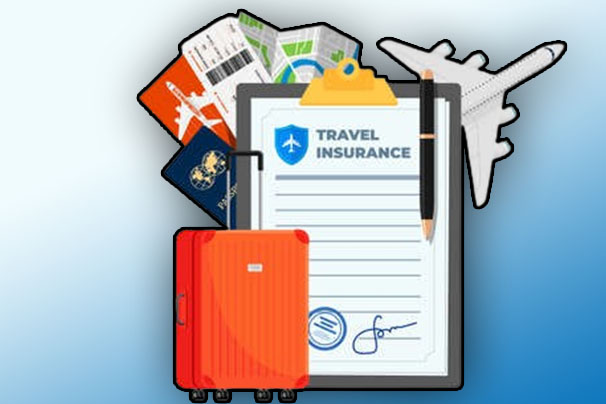When planning a vacation, an important thing to consider is the safety of your belongings. Travel insurance can help you secure your things from expected situation, like theft or missing bags, making it an important consideration for those who intend to go on a trip. You might have wondered how travel insurance works for baggage. We have all the answers to your probing questions, here in this article.

Travel insurance is specifically made to protect tourists against a variety of hazards. And it frequently covers problems relating to baggage like theft, damage, or loss. By being aware of how travel insurance works for baggage, you will have a better idea of the claim process and precautions you need to take to ensure that your belongings are safe during your trip.
How Travel Insurance Works For Baggage
Travel insurance is typically designed to provide financial protection for policyholders who travel frequently. It offers essential protection against losses pertaining to your baggage and other personal belongings when travelling. This coverage gives peace of mind throughout your trip knowing that if your baggage gets lost. Or stolen, or damaged, your insurer will reimburse you.
The steps involved in filing a claim for lost or damaged baggage typically includes reporting the incident to the airline. Or appropriate authorities and submitting the required documents to your insurance company. However, it is important to fully understand what your policy covers, including its limitations and exclusions for expensive things.
That being said, having baggage coverage as part of your insurance policy ultimately guarantees financial security and also helps to improve your trip by lessening the effects of unforeseen baggage issue.
Why Is Baggage Coverage Needed?
Regardless of whether you have checked in your baggage with the airline.There may be situations where it may be delayed or lost. Hence, the need for policyholders to include baggage coverage in their travel insurance policy.
If you are lucky enough, the airline may take the responsibility of helping you to find you missing baggage. However, in the case of an uncontrolled situation, the only safety net to run to is your travel insurance policy.
When Does Travel Insurance Provide Coverage For Baggage?
There are two major scenario where you baggage can be covered by your insurance policy, read along as we shed more light on it;
Loss of Checked-In Baggage
If you travel insurance include coverage for baggage and in the process of travelling, your baggage was lost or stolen, you can file a claim to your insurance provider. Once you file a claim to your insurer, you will be reimbursed for all related expenses up to your policy’s limit.
To get the claim approved, you will be required to submit documents that support your claim. This includes report from the airline or local authorities and receipts of the lost items. However, the said claim must meet the parameters of the type of travel insurance policy you purchased before you can be reimbursed
Delay of Checked-In Baggage
If you baggage arrive later than expected, your insurance policy may offer compensation by reimbursing you with a specific amount to purchase necessary things until your baggage gets to you.
This coverage is dependent on the specifics of your ravel insurance policy. If the type of policy your purchased, does not offer coverage for baggage delay, it will not be covered.
It is important to always read the fine print of any type of insurance product in order to have a better understanding of what it covers and what it does not.
When Is Baggage Not Covered By Travel Insurance?
While travel insurance offers coverage for baggage in general, there are cases your baggage will not be covered. Highlighted below are some of the exclusions in baggage insurance;
- Baggage not checked in with the airline.
- Forgotten items.
- Wear and tear or damage due to veryday use.
- Items not included in your policy.
- Baggage delayed for less than the insurer’s waiting period.
- Loss or theft not reported to the airline or appropriate authorities.
- Loss due to confiscation by customs or public authority
- Baggage lost due to negligence.
- Claims filed after the policy’s coverage period.
How Much Baggage Insurance Do I Need?
There are several factors that typically influences how much baggage insurance you need. This includes the value of your belongings, the length of your trip, including your travel habits.
It often make sense to do an estimate of the whole cost of your personal belongings. Such as jewelry, electronics, clothes, and any expensive stuff.
Furthermore, take into account whatever insurance policies you may already have, such as renters. Or homeowners’ insurance, which might already cover some of your possessions during your trip.
In the end, determining the appropriate level of baggage insurance requires striking a balance between your needs and the coverage limitations provided by your travel insurance policy.
FAQs
What step should I take if my baggage is lost or damaged?
In a situation where you misplaced your baggage or it was damaged, get a written report and notify the airline of your situation immediately. Once you have informed them, the next thing to do is to submit a claim to your travel insurance company with details of how everything went down.
Do I need to purchase additional coverage for expensive items?
If you taking a high-value item on your trip, you may need to purchase additional coverage. To ensure they are adequately protected. You can seek information from your insurance provider if there are supplementary coverage for high-value items such as jewelry or expensive electronics.
How can I file a claim for lost baggage?
First, you have to gather all necessary documents such as the report gotten from the airline, receipts for your belonging, including the specifics of your travel insurance policy. Once you have all the documents ready for the lost baggage claim, submitit to your insurance company.



